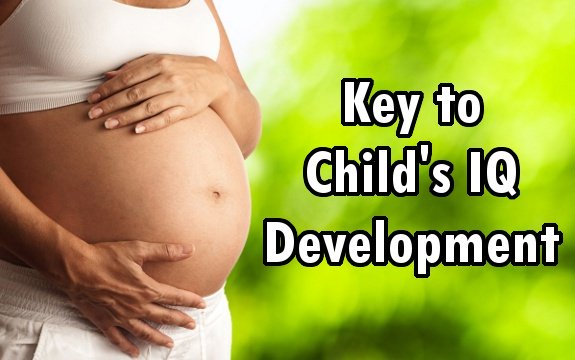Weight Gain in Baby’s First Month Key to IQ Development and Later School Performance

 More than 13,800 children who were born full-term were recently part of a study conducted by the University of Adelaide and published in the international journal Pediatrics which suggests weight gain and increased head size during the first month of a baby’s life is absolutely key to its future intellectual development.
More than 13,800 children who were born full-term were recently part of a study conducted by the University of Adelaide and published in the international journal Pediatrics which suggests weight gain and increased head size during the first month of a baby’s life is absolutely key to its future intellectual development.
Mother’s who breastfeed likely contribute to this weight gain, but even babies who are bottle-fed can stand to gain (though breastfeeding is always better).
The results of the study details how babies who increase their overall weight in the first four weeks of their life by at least 40% of their birthweight scored an average of 1.5 points higher on IQ tests given at the age of 6, when compared to babies who only gained an additional 15% of their birthweight. Increased head size (due to healthy growth of the baby) also increased IQ scores. Those with the largest gain in head circumference, performed the best on IQ tests as young children. This is due, in part, to larger brain size.
“Head circumference is an indicator of brain volume, so a greater increase in head circumference in a newborn baby suggests more rapid brain growth,” says the lead author of the study, Dr Lisa Smithers from the University of Adelaide’s School of Population Health.
The first four weeks were absolutely critical to later intellectual measures. Children who gained the most weight during this time scored especially high on verbal IQ tests. This is likely due to the fact that neural structures to process language develop very early on.
Another study found that overall, breastfeeding was tied to an improvement of 0.21 point on language tests after mother’s intelligence and other factors like family income were taken into account.
A newborn’s brain is about 25 percent of its approximate adult weight. By age 3, an infant’s brain has grown spectacularly, producing billions of cells and hundreds of trillions of connections, or synapses, between these cells. It is likely that additional brain volume allows for more synaptic connections to be formed.
There are numerous studies which confirm that prenatal diet has important ramifications for a baby’s later development, but this is the first study of its kind to look at weight gain alone as statistically significant for development of overall cognitive abilities in children. This study points out the essential need to support mothers who have difficulty breastfeeding.
With studies that prove the first breast milk is ‘liquid gold,’ even changing to support a babies nutritional needs as they grow from infancy, as well as scientific studies which point out that continued breastfeeding can aid in the intellectual, emotional, and developmental milestones a baby needs in order to grow into a well-adjusted, happy child, this is just more proof that mother’s milk is miraculous.
